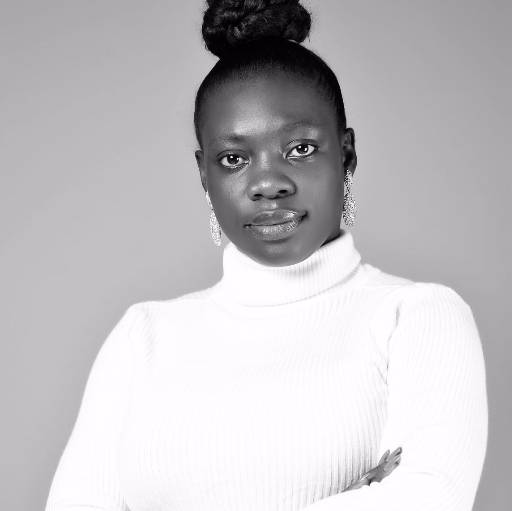Menu

It’s a scene every parent knows well: your child is handed something by a kind stranger, and you instinctively nudge them. “What do you say?” you ask. It’s a parenting reflex so it feels almost universal.
But one mum has chosen a completely different path. Instead of insisting her kids say “please” and “thank you,” she focuses on modelling those behaviours herself. It’s a small shift with big results. Both of her toddlers use these polite phrases consistently—not because they’re required to, but because they’ve learned from watching her.
Her story is one of trust, patience, and the belief that children learn best when they feel respected and supported. And it’s sparking a conversation among parents who are rethinking how politeness is taught.
If you’ve ever marvelled at how babies go from babbling to forming sentences, you’ve seen natural language acquisition at work. It’s a process as old as humanity itself, rooted in the way children absorb the language they hear in their environment.
For this mum, who is also a speech-language pathologist, this understanding forms the backbone of her parenting approach. From the earliest days of her children’s lives, she’s made it a priority to model respectful language. When she needs their help, she says, “Could you please pass me that toy?” When they help her, she responds with, “Thank you so much for picking that up.”
Her goal isn’t to drill manners into them—it’s to create an environment where politeness is part of the air they breathe. And it works.
Other parents have seen the same results:
@cassidyandkids Do you make your kids say please & thank you to other people? Your reminder toddlers learn best through YOU so try this way instead 🙌🏻 #toddlermom #parentingtips #gentleparenting #parentingstyles #languagedevelopment #speechtherapy #speechdelay #babydevelopment #childdevelopment ♬ original sound - Cassidy Anderson & kids
For young children, politeness is about much more than memorising words. It’s about building the confidence to connect with others and express themselves. This mum emphasises that forcing kids to say polite phrases, especially in public, can sometimes do more harm than good.
Imagine a shy toddler being asked to say “thank you” to a stranger. For some kids, that kind of interaction can feel overwhelming. Instead of encouraging communication, it might make them withdraw.
This mum’s approach focuses on the bigger picture. “Babies and toddlers need to learn how to share their wants and needs, ask for help, and interact socially,” she explains. “If we push them to use polite words before they’re ready, it can get in the way of that development.”
One commenter shared a moment of pride when politeness emerged naturally:
This spontaneous gratitude is the kind of genuine connection that can’t be forced.
This mum’s approach fits seamlessly into the framework of gentle parenting, which emphasises respect, empathy, and collaboration. But for her, it’s not about labels—it’s about creating a home where respect is mutual.
She explains, “I don’t think of it as gentle parenting. I think of it as speaking to my kids the way I want them to speak to me and others.”
This respect-first mindset allows her to teach manners without demanding them. Instead of saying, ‘Say thank you,’ she demonstrates gratitude in her own actions. Over time, her children naturally adopt the same behaviour.
One parent echoed this sentiment in the comments:
There’s a key difference between saying polite words out of obligation and saying them because you mean them. For this mum, the goal isn’t just to teach her kids to say ‘please’and ‘thank you.’ It’s to help them understand and feel genuine gratitude.
She shares an example: when her toddlers help clean up their toys, she says, ‘Thanks for helping me pick those up.’ It’s not just about the words; it’s about acknowledging their effort and showing appreciation.
This approach fosters a deeper understanding of kindness and connection. Politeness becomes a natural expression of these values, not a rule to follow.
The comments on her story reveal a growing community of parents who are embracing this approach. For many, it’s a relief to step away from the pressure of enforcing manners and instead focus on modelling them.
These stories highlight how modelling respectful behaviour creates an environment where politeness flourishes naturally.
At its heart, this mum’s strategy is simple: if you want your kids to be polite, start by being polite to them.
Here’s how you can incorporate this approach into your daily life:
This method works because it aligns with how kids naturally learn. Instead of being told what to do, they observe, absorb, and eventually emulate the behaviours they see every day.
If you’re wondering whether this approach will work for your family, the answer is yes—because it’s never too late to start. Whether your child is still learning to talk or already navigating social interactions, modelling respectful language can make a difference.
Politeness isn’t about perfection or following rules. It’s about building a foundation of kindness, connection, and mutual respect. And as this mum’s story shows, it’s the simplest habits—like saying “thank you” to your child—that can have the most profound impact
© Mindsmaking 2024